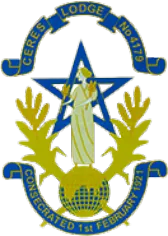A £10,000 grant from London Freemasons will be used in full to support the UP STIM project at the Royal National Orthopaedic Hospital (RNOH)to provide ground-breaking medical projects to improve spinal cord recovery.
The innovative work carried out by the charity ensures stimulation to the spinal cord is applied as early as possible after an accident, giving the individual the best possible chance to recover both movement and control of their limbs.
UP STIM uses a method called transcutaneous Spinal Cord Stimulation (tSCS) to help high-break SCI individuals recover limb movement and control. Applying tSCS, which is a low-cost technique, as early as possible in the recovery and treatment of the patient will make huge strides towards early functional recovery and give them back their independence.
One spinal cord injured individual said: ‘I just want to be able to lift a cup of tea to my mouth again, I am fed up drinking through a straw!’ UP STIM will give that person back the muscle and limb functionality that we take for granted every day.

UP STIM, being run by Drs Lynsey Russell, aided by Dr Sarah Massey and a team at the Royal National Orthopaedic Hospital (RNOH), Stanmore. Cervical spinal cord injury (SCI) is a high break in the spinal cord, which impairs all motor and sensory function below the level of injury, including trunk and lower limb activity as well as arm and hand function; this substantially limits the affected individual’s ability to carry out daily functional tasks and to live independently, so recovering hand and arm function is a top priority among people living with cervical SCI.
Stephen Croft, Director INSPIRE. said:
“I cannot begin to tell you how much we appreciate the generous Grant of £10,000 from London Freemasons. We will be putting the full amount towards project UP STIM at the Royal National Orthopaedic Hospital, Stanmore, a world leading project that helps people with a high break in their spinal cord to get moving again.”
Paul King, London Freemasons said:
“The work that INSPIRE are doing through their UP STIM project is hugely important and we are proud to be able to support it”

